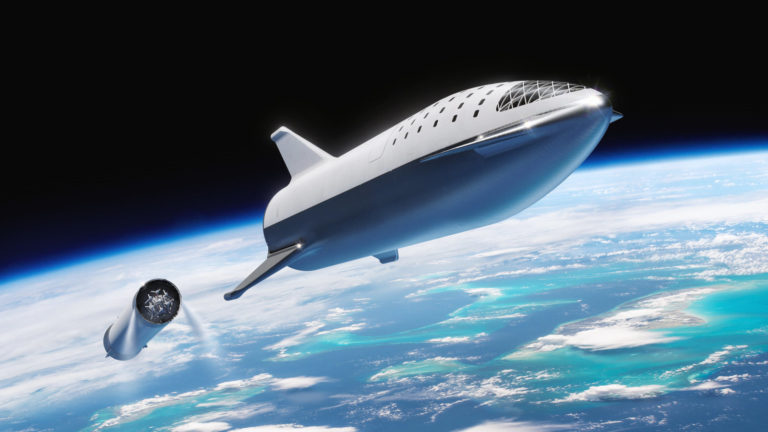
Fifty years ago, the world held its breath as it could hear and see mankind walk upon the surface of another world. Fast-forward to today and a lot has changed: technology, politics, and the space race, but still no casino on the Moon as in Andy Weir’s book Artemis. Even though we have access to over 100,000 times the processing power in our small, half-pound smartphone, as compared to the 70-pound behemoth known as the Apollo Guidance Computer, Commercialized Space, specifically Space Tourism, is still in its infancy. However, that slowly started to change when the United States enacted the Commercial Space Launch Act and retired its Space Shuttle Program.
Companies such as Virgin Galactic, SpaceX, Blue Origin, Orion Span, and Boeing (to name just a few) have started the slow ascent into commercializing spaceflight with some even providing launch vehicles to both the government and commercial companies at a reduced cost. In order to keep U.S. companies in competition with the rest of the world, the United States passed the previously mentioned Commercial Space Launch Act (“Launch Act”).
The Launch Act requires companies to either obtain third-party liability insurance[1] or show it has the financial responsibility in order to cover third-party claims up to the maximum probability loss (“MPL”) when the company is issued a launch or reentry license by the United State Government. Each MPL is determined on a case-by-case basis; however, the cap is set at $500 million in 1988 dollars. Adjusting to current market inflation, that amount is over $1.08 billion. Yet, if the company/licensee is unable to obtain insurance to that amount, the requirement can be satisfied by obtaining the maximum amount of insurance available in the world market at a reasonable amount. Any amount between $1.08 billion and approximately $3.25 billion (adjusted inflation rate from $1.5 billion in 1988 dollars) may be indemnified by Congress for third-party liability. Any amount over $3.25 billion is the responsibility of the company/licensee. Although these vast liability dollar figures seem to make the Launch Act an overarching law to cover all liabilities, it does not. Instead, liabilities not covered by the Launch Act arguably fall to the States to decide.
Although a majority of the United States have not made progress to cover commercial space liability issues states such as Florida, New Mexico, Texas, and Virginia have come forward to jump-start the process. These states have provided laws to shield commercial operators from liability of third-party injury (e.g. personal injury and wrongful death claims) in order to promote the growth of the commercial space industry. Florida in particular passed a statute in 2011, requiring participants in spaceflight activities sign the following warning statement:
WARNING: Under Florida law, there is no liability for an injury to or death of a participant in a spaceflight activity provided by a spaceflight entity if such injury or death results from the inherent risks of the spaceflight activity. Injuries caused by the inherent risks of spaceflight activities may include, among others, injury to land, equipment, persons, and animals, as well as the potential for you to act in a negligent manner that may contribute to your injury or death. You are assuming the risk of participating in this spaceflight activity.
§ 331.501(2)(c), Fla. Stat. The drive behind Florida’s Spaceflight Informed Consent Statute is to create some protection to these fledgling companies against third-party claims of spaceflight participants or their heirs. Afterall, anything dealing with chemically propelled rockets would be considered an inherently dangerous activity and knowingly consenting to it would preclude liability in Florida, but only to a certain point. Companies would still be on the hook for anything that constitutes the following:
1. Commits an act or omission that constitutes gross negligence or willful or wanton disregard for the safety of the participant and that act or omission proximately causes injury, damage, or death to the participant;
2. Has actual knowledge or reasonably should have known of a dangerous condition on the land or in the facilities or equipment used in the spaceflight activities and the danger proximately causes injury, damage, or death to the participant; or
3. Intentionally injures the participant.
§ 331.501(2)(b)(1)-(3), Fla. Stat. Although commercialized
space programs can be potentially dangerous to those participating and working
in the field or to those indirectly affected by it, by reducing liabilities to
the above language, the industry can be given room to refine their
technologies, safety features, and techniques while growing as a business.
Indeed, states such as Florida are incentivized to give their state a
competitive edge for commercialized space ventures, as it would entice such companies
to set up shop, encourage a highly skilled and educated workforce to relocate,
and eventually set the stage to a profitable tourist industry. Who knows, we may
even get that Moon casino after all.
[1] Yes, you read that right. Space Insurance is a thing, and the first Launch Insurance Policy was issued in 1968. Rod Margo, Some Aspects of Insuring Satellites, 10 Insurance Law Journal 555, 556 (1979).


